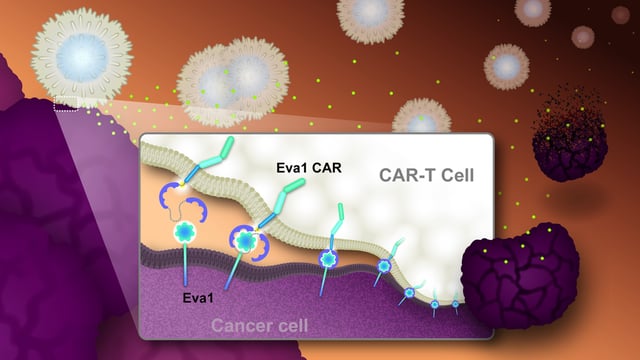Overview
- Eva1 protein is highly expressed on lung, pancreatic and liver tumor cells while remaining scarce on healthy tissues, making it a prime target for solid tumor CAR-T therapy.
- Optimized CAR constructs combining a short spacer with 4-1BB or dual CD79A/CD40 co-stimulatory domains eradicated tumors in murine models of lung and pancreatic cancer.
- Engineered CAR-T cells exhibited antigen density sensitivity, activating only against high Eva1 expression and sparing normal monocytes.
- Humanization of the original mouse antibody fragment minimized immunogenicity and improved selectivity for the Eva1 antigen to reduce off-target effects.
- Ongoing mouse-model toxicity studies will inform safety profiles ahead of planned collaborations with biotech partners for first-in-human trials.
